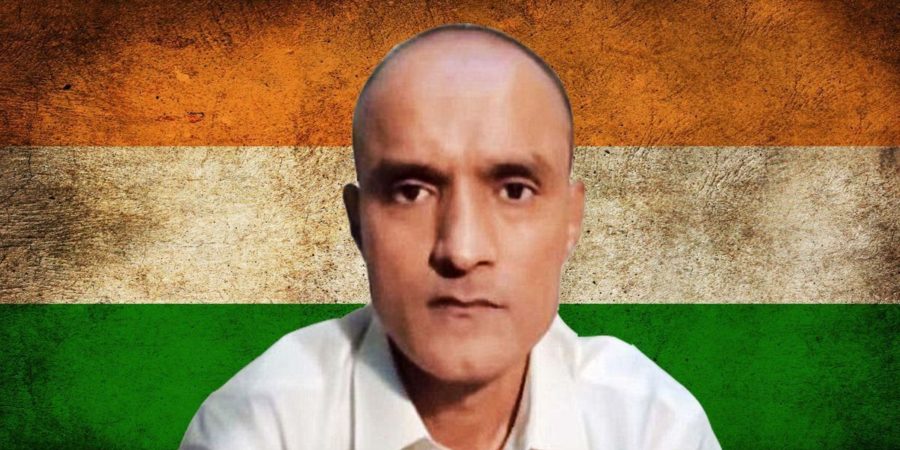ICJ provisionally stays execution of Indian spy Kulbhushan Jadhav

MAY 18, (DNA) – The International Court of Justice (ICJ) on Thursday ordered Pakistan to stay the hanging of self-confessed Indian spy Kulbhushan Jadhav until it rules in the treaty violation case.
The UN court for hearing disputes between states stayed the execution till it has time to hear a case brought by India arguing that Pakistan violated its obligations under an international treaty. ICJ’s rulings are binding.
Announcing the verdict, President Ronny Abraham said, “Pakistan should take measures to ensure that Jadhav is not executed until ICJ’s verdict.”
“Pakistan shall take necessary measures to ensure that Jadhav is not executed until the final decision in these proceedings and shall inform the court all the measures taken in implementation of the court’s order,” the president added.
Power of the court to indicate provisional measures as demanded by India will only be exercised if there is urgency, Abraham said. Pakistan has suggested Jadhav’s execution will not take place before August 10, 2017, the president said.
India had moved the UN court urging it to suspend Jadhav’s sentence and declare that it was arrived at “in brazen defiance of Vienna Convention rights”. Pakistan had defended its position by terming New Delhi’s story a far-fetched one as criminal cases did not fall within the purview of the Vienna Convention.
India argued in a preliminary hearing at the UN court that Pakistan violated the Vienna Convention on Consular Relations by denying the condemned man access to legal and other assistance from India. Pakistan responded that the court should decline jurisdiction in the case.
Monday’s hearings focused on India’s request for so-called “provisional measures” that can be granted at short notice to ensure a dispute between states does not deteriorate during full ICJ proceedings, which typically take several years.
At the core of the dispute is the fate of Kulbhushan Sudir Jadhav, a former officer in the Indian navy who was arrested in March 2016 in Balochistan. There has been a long-running conflict in Balochistan between Pakistani security forces and a separatist movement. According to Islamabad, Jadhav confessed to being tasked by India’s intelligence service with planning, coordinating and organising espionage and sabotage activities in Balochistan “aiming to destabilise and wage war against Pakistan”.
In April, a Pakistani military court sentenced him to death . No date was set for the execution. Pakistan has said Jadhav’s conviction and sentence remain open to appeal.
India’s representative at the ICJ hearing, Deepak Mittal, described the charges against Jadhav as ‘concocted’ and his trial as ‘farcical’.
Responding, Pakistan’s agent before the court, Mohammad Faisal, said India’s complaint was “political theatre” and the court “should not exercise any jurisdiction in the case”. Pakistan argued that counsular access is not an absolute right under the Vienna treaty, and that a 2008 bilateral treaty between India and Pakistan supercedes it anyway.
The court said it would set a date for ruling “as soon as possible”.
Pakistan believes that India is using covert means to foment violence in the country with an aim to undermine the multibillion dollar ‘One Belt, One Road’ initiative of China. The recent surge in terrorist attacks in the country has once again brought the India intelligence agencies’ role in backing the terrorism in Pakistan to the spotlight.
Security officials claim that RAW was using certain militant outfits operating out of Afghanistan to carryout terrorist attacks in the country. The current Indian National Security Adviser Ajit Doval is considered to be the architect of this policy called ‘offensive defensive’ that advocates a policy of supporting proxies to create trouble inside Pakistan.
The ICJ was set up in 1945 to rule on disputes between nations in accordance with international law. The last time India and Pakistan took a dispute to the ICJ was in 1999 when Islamabad protested against the downing of a Pakistani navy plane that killed 16 people.
In that case, the tribunal decided it was not competent to rule in the dispute and closed the case.
India and Pakistan routinely accuse one another of sending spies into their countries, and it is not uncommon for either nation to expel diplomats accused of espionage, particularly at times of high tension. But death sentences have rarely been issued in recent years.
Related News

PM Shehbaz, UAE President meet in Rahim Yar Khan Palace
RAHIM YAR KHAN, DEC 30 /DNA/ – Prime Minister Muhammad Shehbaz Sharif met with HisRead More

Ethiopian, Moroccan envoys in Islamabad discuss regional cooperation
ISLAMABAD, DEC 30 /DNA/ – The Ambassador of Ethiopia to Pakistan, paid a courtesy callRead More


Comments are Closed